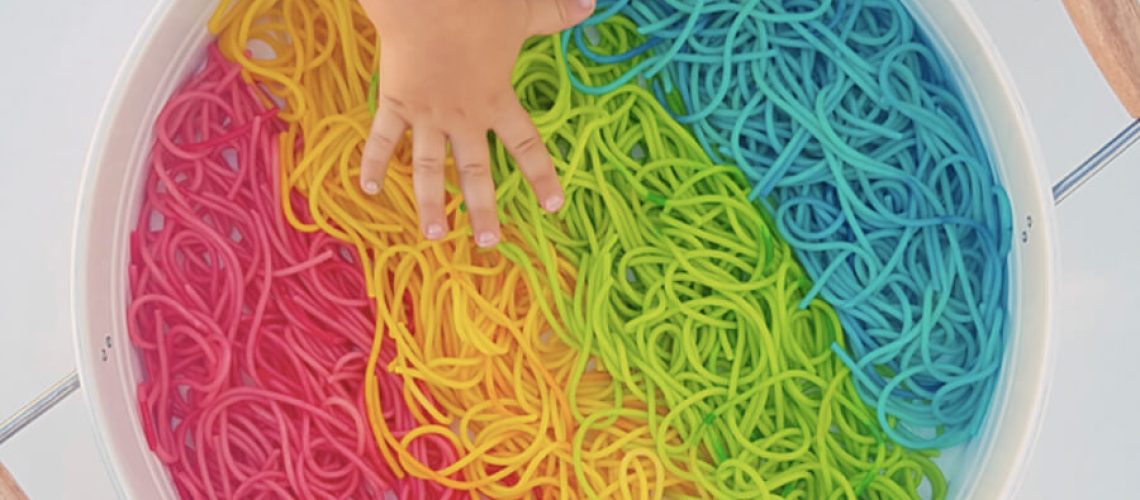“Sensory Play” is a term used a lot in the therapy world. And while we love getting out our playdoh or the paints, many people don’t know the huge list of developmental qualities sensory play brings to your child’s development.
Sensory play helps our child to dive into their senses – smell, taste, touch, sight and hearing. Oh, let’s not forget the secret senses, balance and body awareness. (Yes, there are seven senses in the body!)
Did you know, the more we enjoy an experience, the more we will learn, and retain that new information, such as motor skills or new words? The more we target our senses, the more aware of our environment we become (both inside our bodies and out). We begin to understand our favorite types of play, what makes us squirm and what makes us joyful. If we enjoy our play time, we automatically increase pleasure in play, meaning, we can add our preferred sensory play, to our not-so-enjoyable learning tasks. We can try hiding the puzzle pieces in a sensory bin of noisy dried pasta or squishy wet jelly, so we actively want to play with puzzles.
Sensory play is vital for development in all children.
It starts at the brain, where connections and messages are sent out from the brain, to the rest of our body. All that talk between the brain and the arms and legs, is concreted through sensory play. This is where we start to figure out what is hard or soft; squishy or slimy; hot or cold; heavy or light. The learning is endless!
You will hear your therapist speak about sensory tools or additional play ideas that may directly help with language or motor skills development., by adding a discussion about what we see, touch or hear (green peas, the soft sand, the smelly shaving foam…) Or jump into a pile a leaves and pick up tiny pieces of pasta, or dig for dinosaurs in the jelly pit…
Now, we all also have those sensory sensitivities. Who likes the sound of nails on a board? Or feeling cotton wool? (oh I *cringe* at the thought of that!) Or do you just need that quiet time during your day, where everyone just stops around you? We use the senses to help us to check in with ourselves, to regulate how we feel in that moment, and we are constantly changing what we do to make us feel right. We use sensory play to help a little one to regulate too. Things such as having quiet book time when they are overwhelmed, or riding their bike when they are bouncing with excess energy. Even using a find and seek game to help bring their attention back to a game.
Sensory play is endless with possibilities, and of course it can be overwhelming as a parent. The My Therapy Space team are a great resource for questions and ideas for sensory play. So why not in your next session, have a chat to your therapist about adding some sensory play into your day.
Or come along to our Sensory DIY group on the 20th May, and make some amazing play opportunities with your little one. Express your interest or book directly to our reception team
Post By Alyce at MTS

